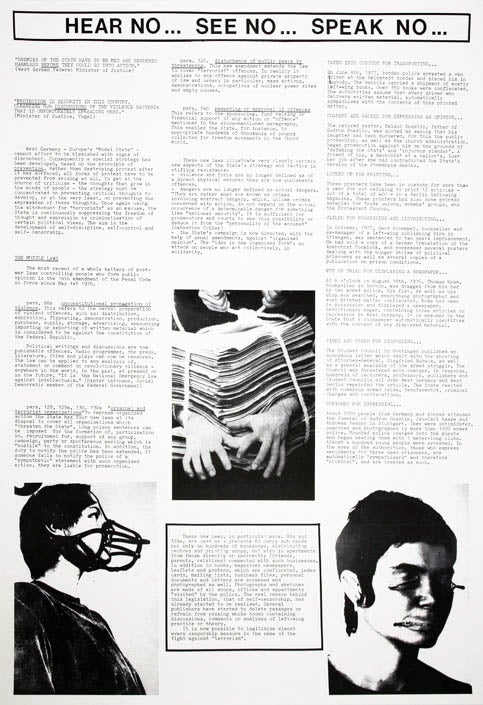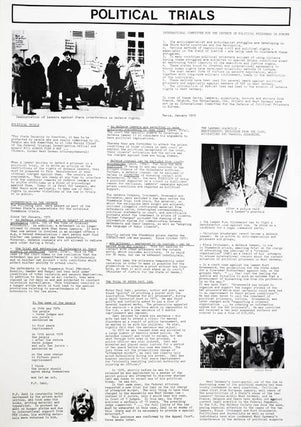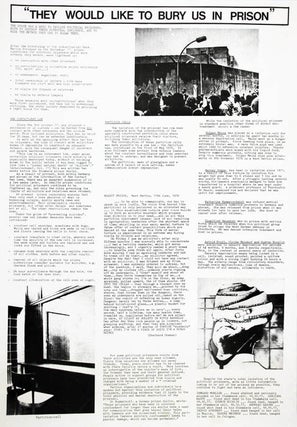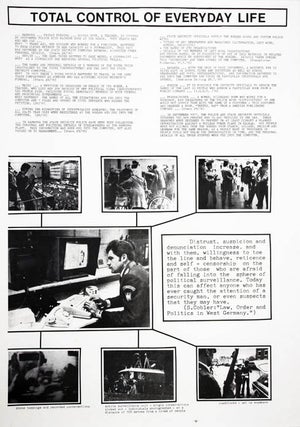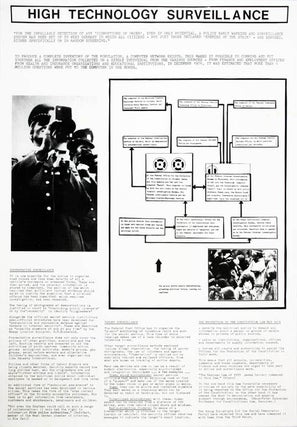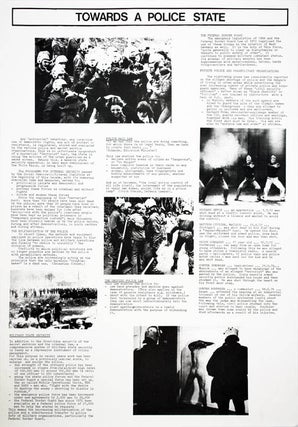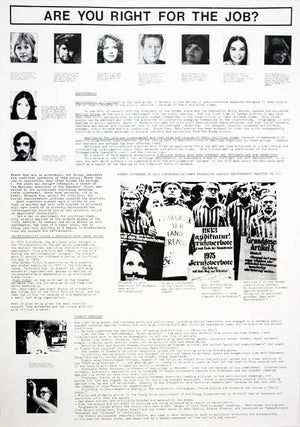59.
A set of seven posters protesting the implementation of Berufsverbot, the German state’s response to the actions of the Red Army Faction.
Np. (London): no pub. (probably the Poster-Film Collective), nd. (1977/78). Offset, printed in black on white stock. Each 61x43cm. Illustrated. Texts in English.
Berufsverbot (Professional Ban) was the name given to the Radikalenerlass (Anti-Radical Act) of 1972, intended to bar leftists working in the public sector. It formed part of the response to the Red Army Faction by Horst Herold, Chief Commissioner of the Federal Criminal Bureau (the BKA), and was followed in 1974 by the Lex Baader-Meinhof law, which led to the lawyers chosen by Andreas Baader and Ulrike Meinhof being removed from their cases two weeks before the trial.
Each poster carries a headline (‘Are You Right for the Job?’, ‘Hear No… See No… Speak No…’, ‘They Would Like To Bury Us In Prison’, ‘Total Control of Everyday Life’, ‘Political Trials’, ‘High Technology Surveillance’, ‘Towards a Police State’) and focuses on the repressive effects of the legislation, in particular in relation to members of the RAF. One poster reproduces a photograph showing former internees of Nazi concentration camps protesting against berufsverbot in 1977 (a similar law was passed in 1933 by the Nazi government prohibiting Jews, artists, political opponents and others from engaging in certain professions).
The north London-based Poster-Film Collective was formed in the early 1970s by a group of artists, photographers and filmmakers (mostly ex staff and students from the Slade, RCA, St. Martins and Hornsey) with the intention of addressing the political issues of the time using readily available printing techniques. During the ‘70s and ‘80s they produced posters and films, and organised exhibitions in collaboration with trade unions, community groups and women’s organisations.
Light handling creases; small hole to lower margin of one poster; overall Very Good plus to Near Fine.
 Back to top
Back to top

